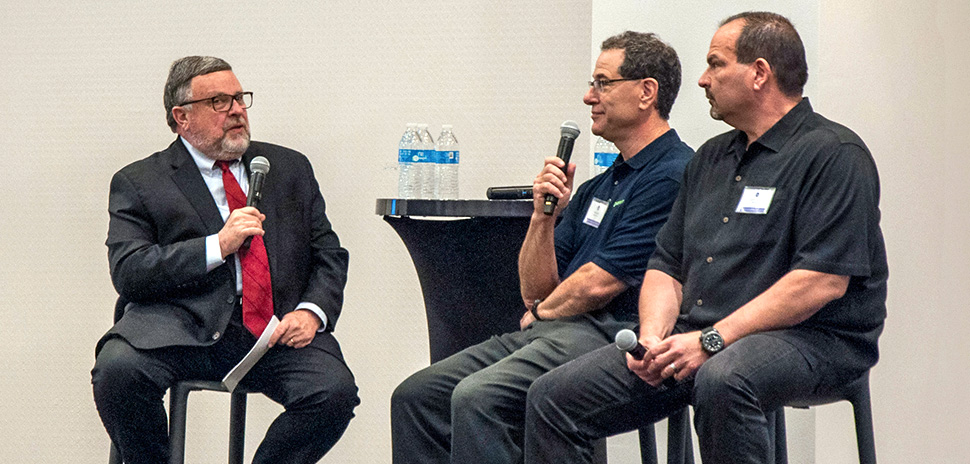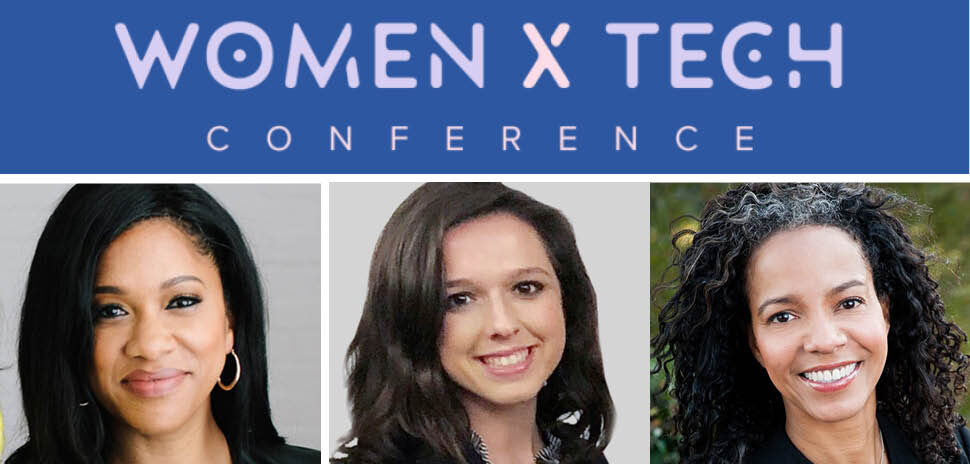David Litman and Lance Crosby know what it takes to turn a scrappy startup into $1 billion.
They talked about the hard work and late nights.The ability to accept failure as it comes and adapt on the fly.
But, to truly add nine zeroes to your bank account, entrepreneurs need to think beyond the next logical step and pivot in a way that nobody else has thought of before, Crosby said.
The two entrepreneurs were the keynote speakers for “The Billion Dollar Exit” seminar during the US India Chamber of Commerce 2017 Annual Technology Conference at the Four Points by Sheraton in Coppell.
“You have to step outside your comfort zone and really take a chance. Right now is the chance of a lifetime.”
Lance Crosby
Crosby, the founder and former CEO of SoftLayer and current CEO of StackPath, monetized cloud computing at a time when no one else had even thought of it.
He faced rejection when companies didn’t understand what he was doing. Along the way he had to avoid distractions.
“That’s not our mission,” Crosby said. “Our mission was to sell cloud computing. If we start doing these other things we lose focus.”
His ability to see where the future was going when no one — not even seasoned Wall Street investors believed him — translated into SoftLayer’s $2 billion acquisition by IBM in 2013.
“Every single service or software and piece of hardware in the world is being turned into a service right now,” Crosby said.
While North Texas has its share of tech startups, Crosby said he’s not seeing enough truly innovative ideas.
“You have to step outside your comfort zone and really take a chance. Right now is the chance of a lifetime,” Crosby said.
Areas where he sees big opportunity include artificial intelligence, machine learning, and using algorithms to parse the big data that’s being collected on a daily basis.
WORK HARD, BE WILLING TO ADAPT
It’s been a very different road for Litman.
He made a strategic decision with his Hotel Reservations Network in the 1990s to make the leap to the internet. He paid a web developer to build the website and started getting reservations from Japan, France, and other countries.
That became Hotels.com, a company that grew to $1 billion by the time he sold it in 2003.
“We had the market all to ourselves,” Litman said. “We exited just as other hotels caught on.”
Litman, who is currently CEO of Getaroom.com, said entrepreneurs have to be willing to adapt and listen to their customers.
“Your business plan is not going to be what you originally planned by the time you launch.”
David Litman
“Your business plan is not going to be what you originally planned by the time you launch,” Litman said. “Look at the data, don’t be dogmatic. Look at what your customers are telling you.”
Being an entrepreneur requires hardcore motivation that has to come from within.
“You’ve got to stick with it. If you can’t motivate yourself don’t even step into the game,” Litman said. “You have to be the one who firmly believes. There’s no work/life balance. You work as hard as you possibly can.”
DIRE NEED FOR STEM GRADUATES
The tech-oriented executives said there’s a lack of qualified engineers in North Texas, a problem that’s compounded by increased restrictions on work visas.
Entry-level computer programmers from foreign countries may not be eligible for H-1B visas under new federal immigration guidance.
That’s why so many corporations are pushing for increased science, technology, engineering, and math education. But limiting immigration will stifle innovation in the country, the panelists said.
“I’m very pro-immigrant,” Litman said. “People still want to come here. We should be accepting everyone. It creates growth, opportunity. Doing math and science is hard. We need people who are focused on the hard stuff.”
Crosby agreed, adding that there aren’t enough women in STEM fields, either. In his experience, race, orientation, or religion are immaterial for success.
He looks for decent human beings who work and play well with others and add value to the company.
“When those three things happen I don’t care who it is,” Crosby said.
Christopher Bhatti, assistant dean for Development and Alumni Relations at UT Dallas’ Jonsson School of Engineering and Computer Science, said the focus talent was important.
“One of the major themes that resounded loud and clear is that finding and attracting top technical talent is integral for the success of any innovative company,” Bhatti said. “Top technical talent is the foundation for creating that entrepreneurial ecosystem in DFW … It is also why it’s so important to have a research university be a part of this discussion.”
Another attendee said that Litman and Crosby shared important lessons.
“Listening to David Litman and Lance Crosby … reminded me of how important it is to love what you [do], to constantly challenge the status quo, and know your ‘why,’” said Andrew Marcus, national director, Data Center Solutions at Transwestern.
Updated on May 2, 2017 by Lance Murray
RELATED: PHOTO GALLERY
Photos: US India Chamber of Commerce Tech Conference
Delivering what’s new and next in Dallas-Fort Worth innovation, every day. Get the Dallas Innovates e-newsletter.


































































